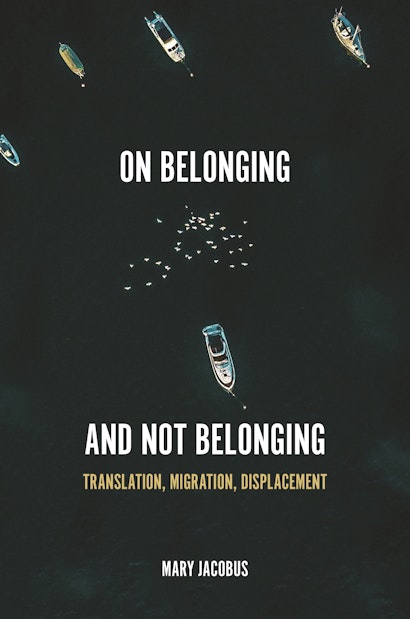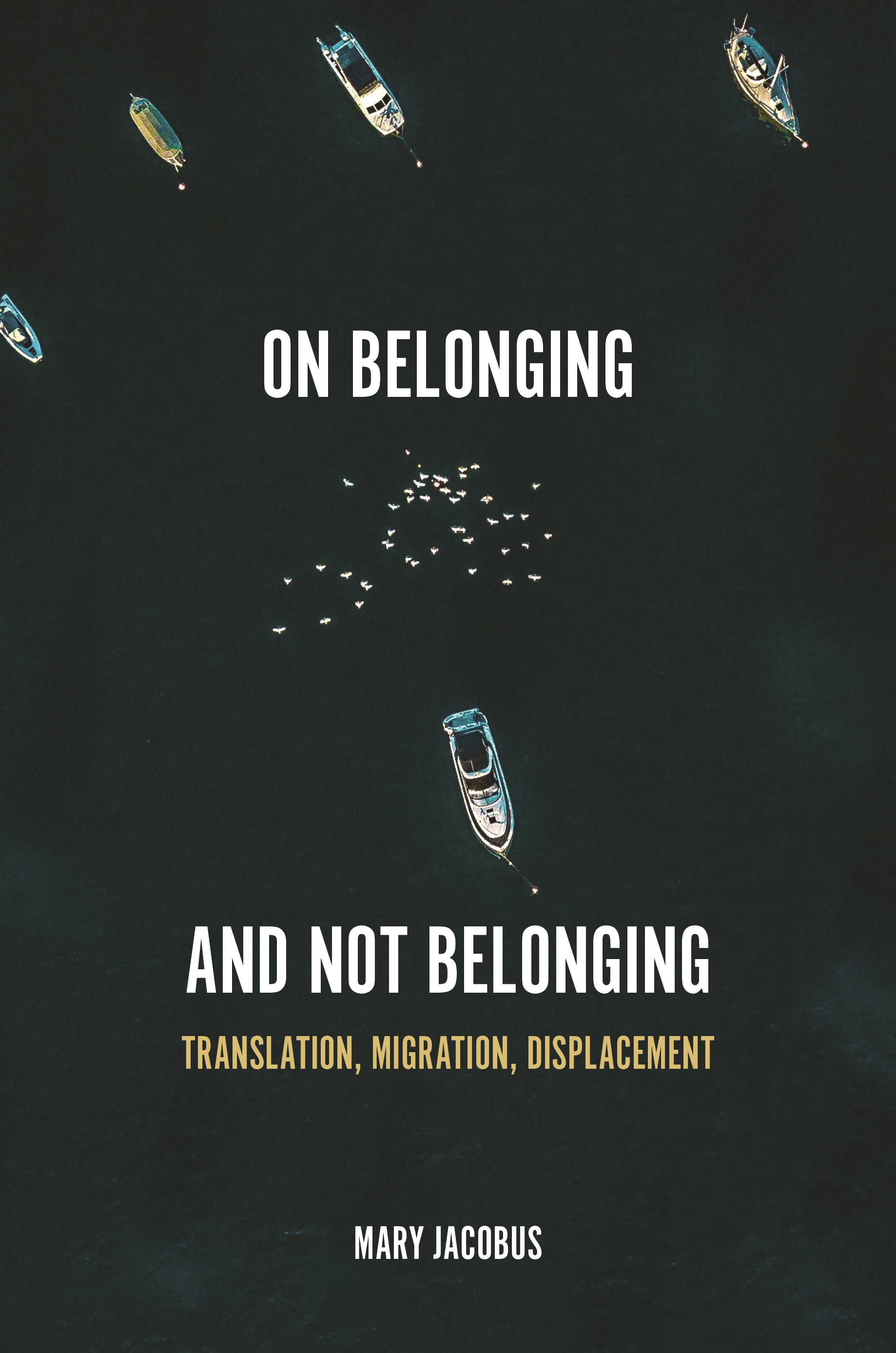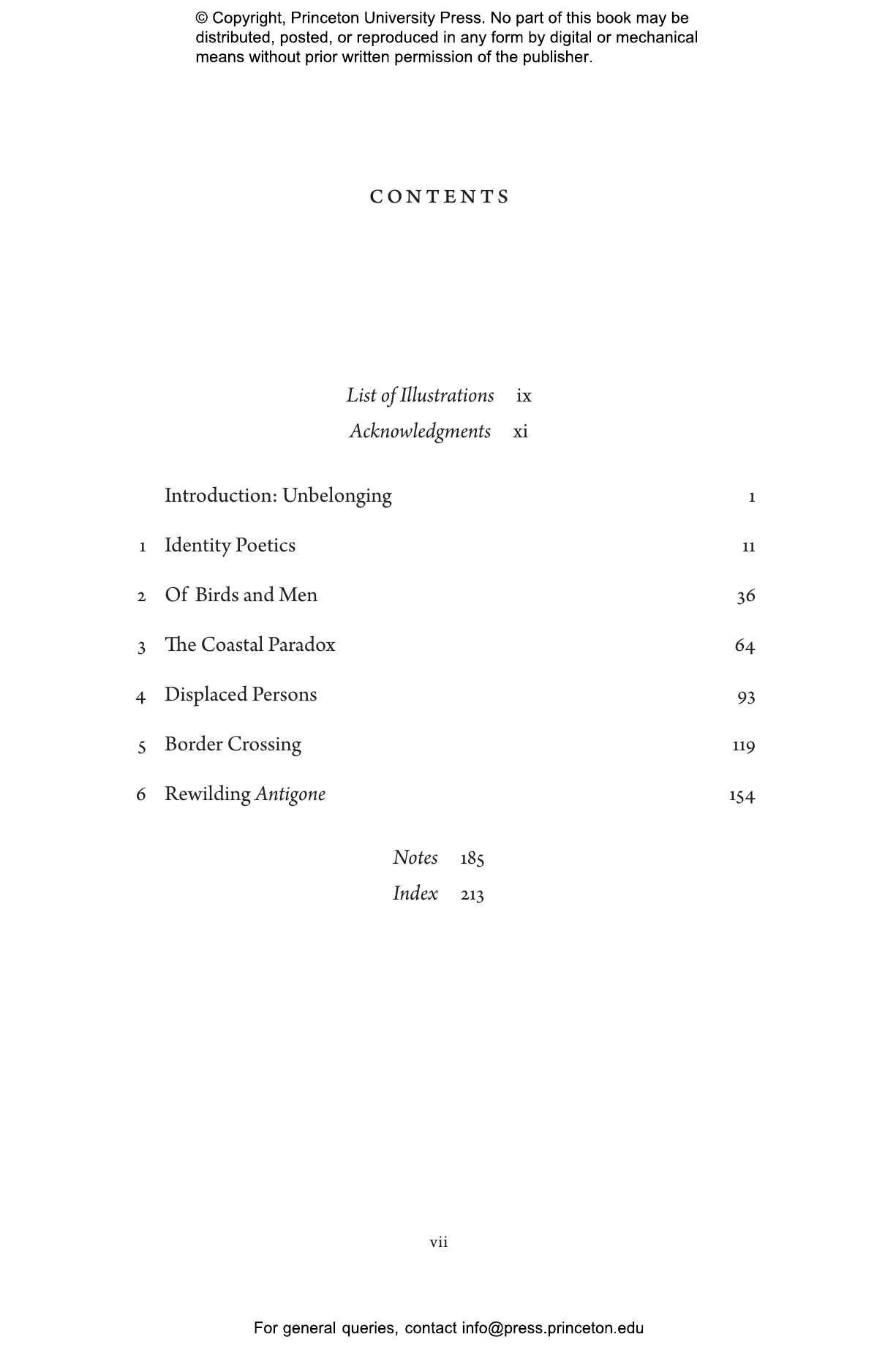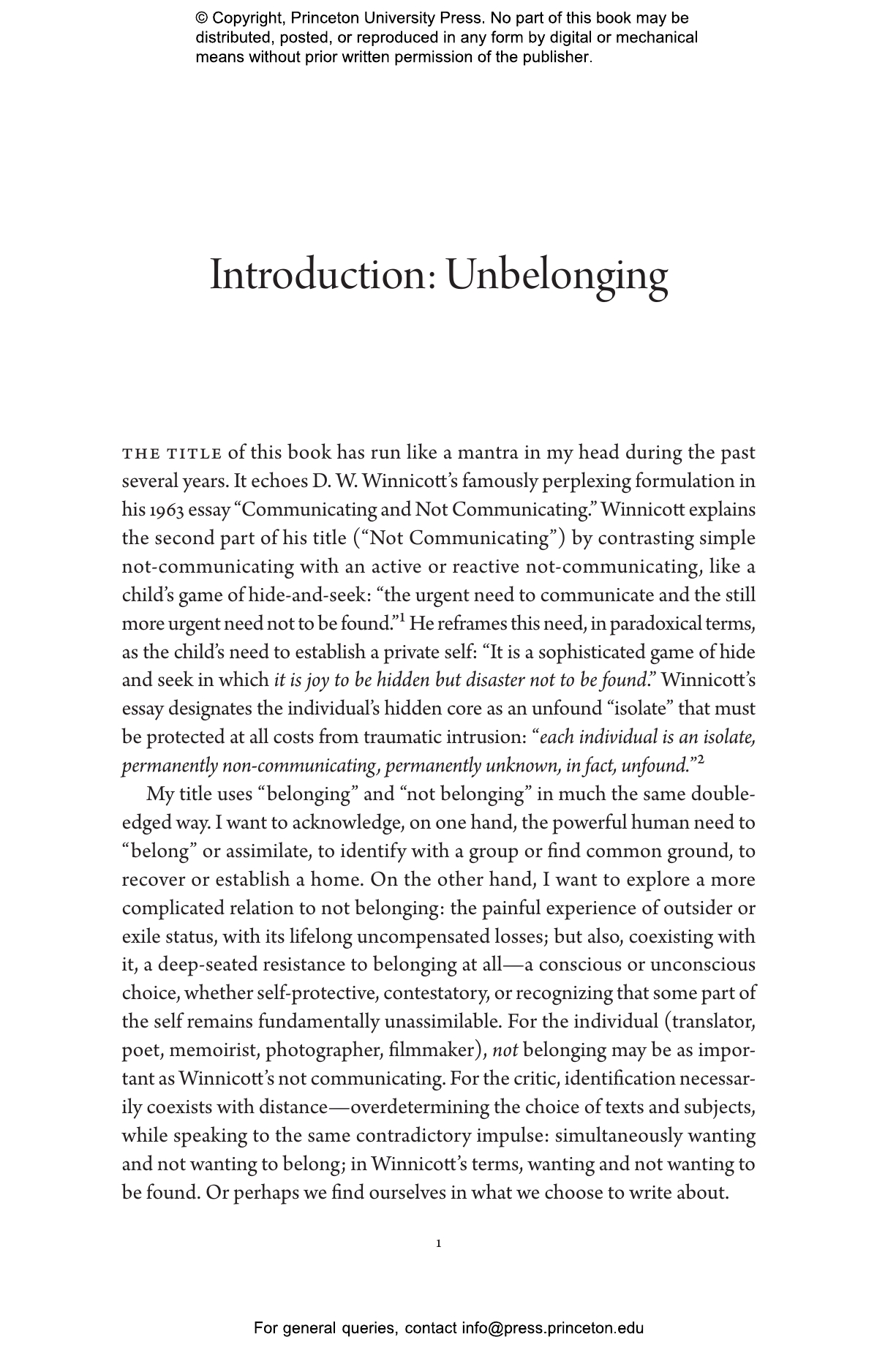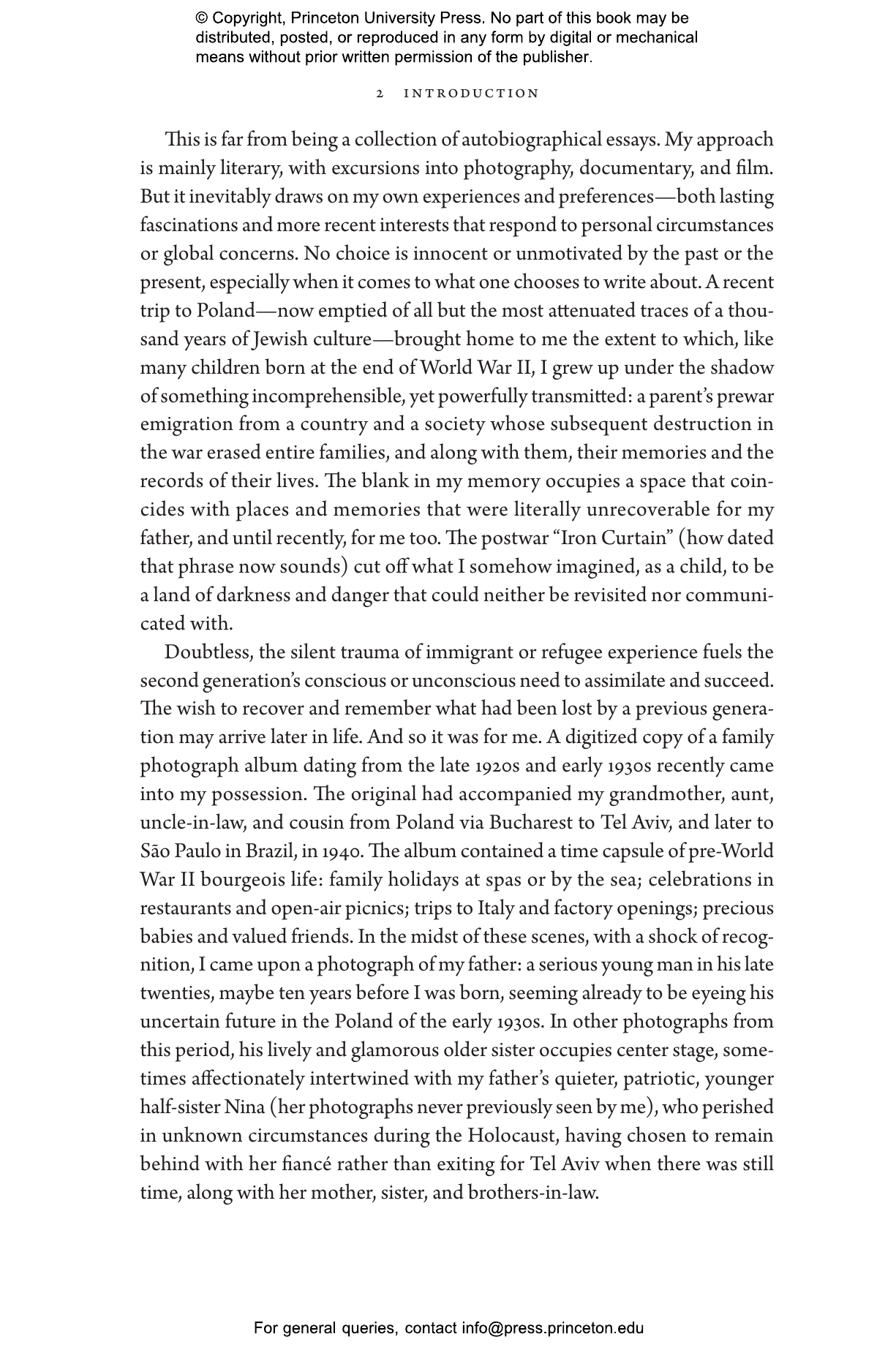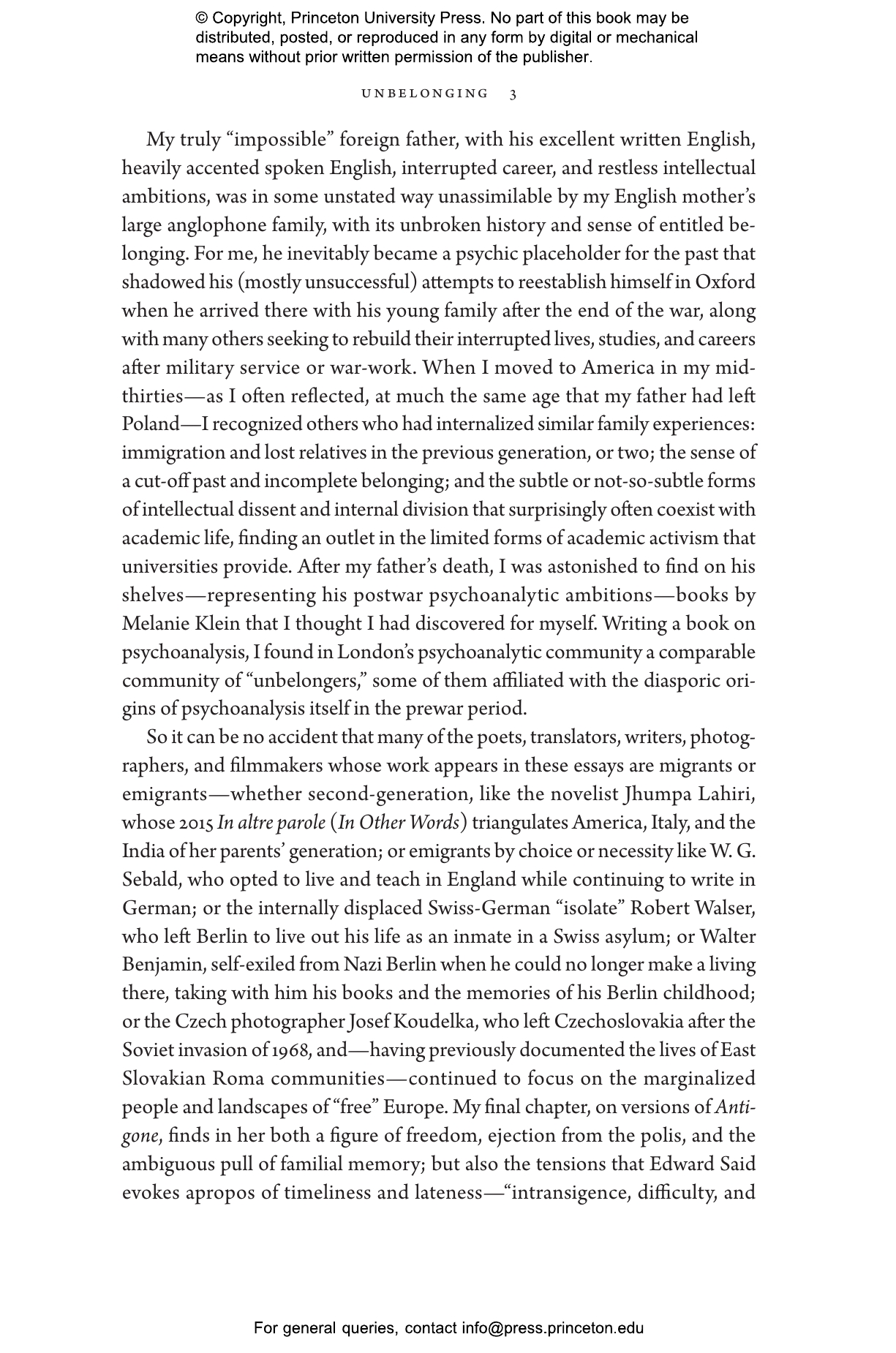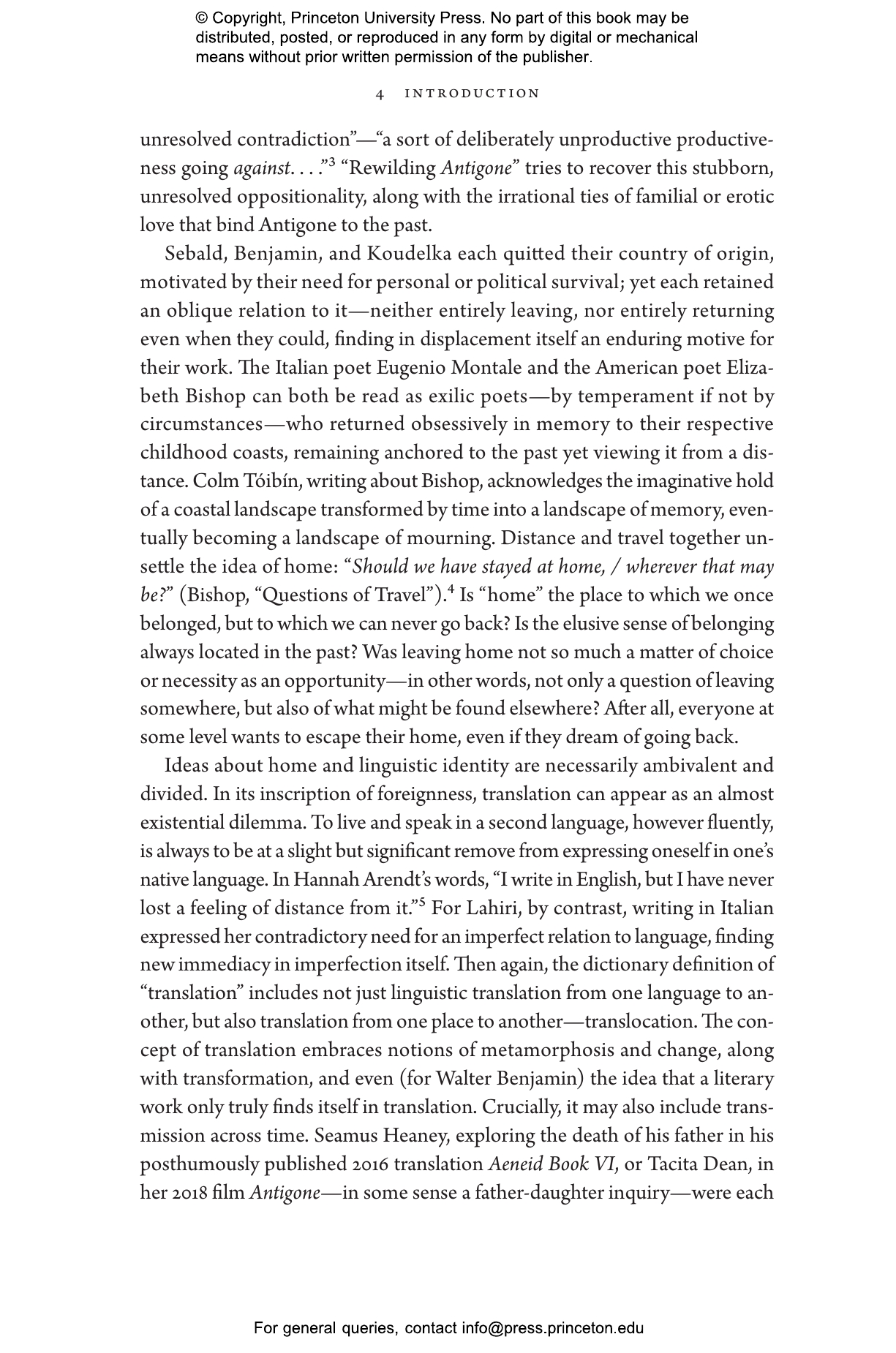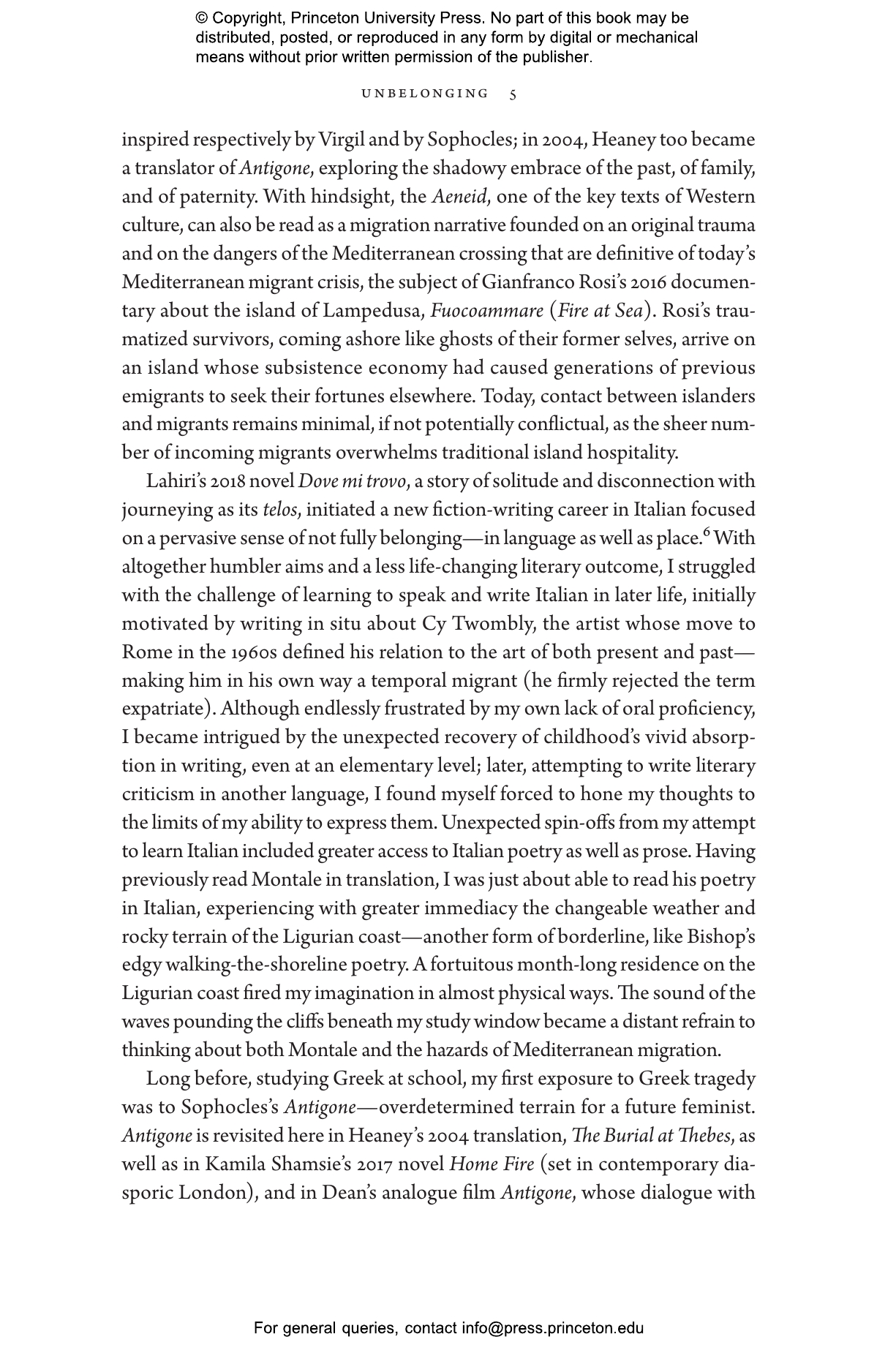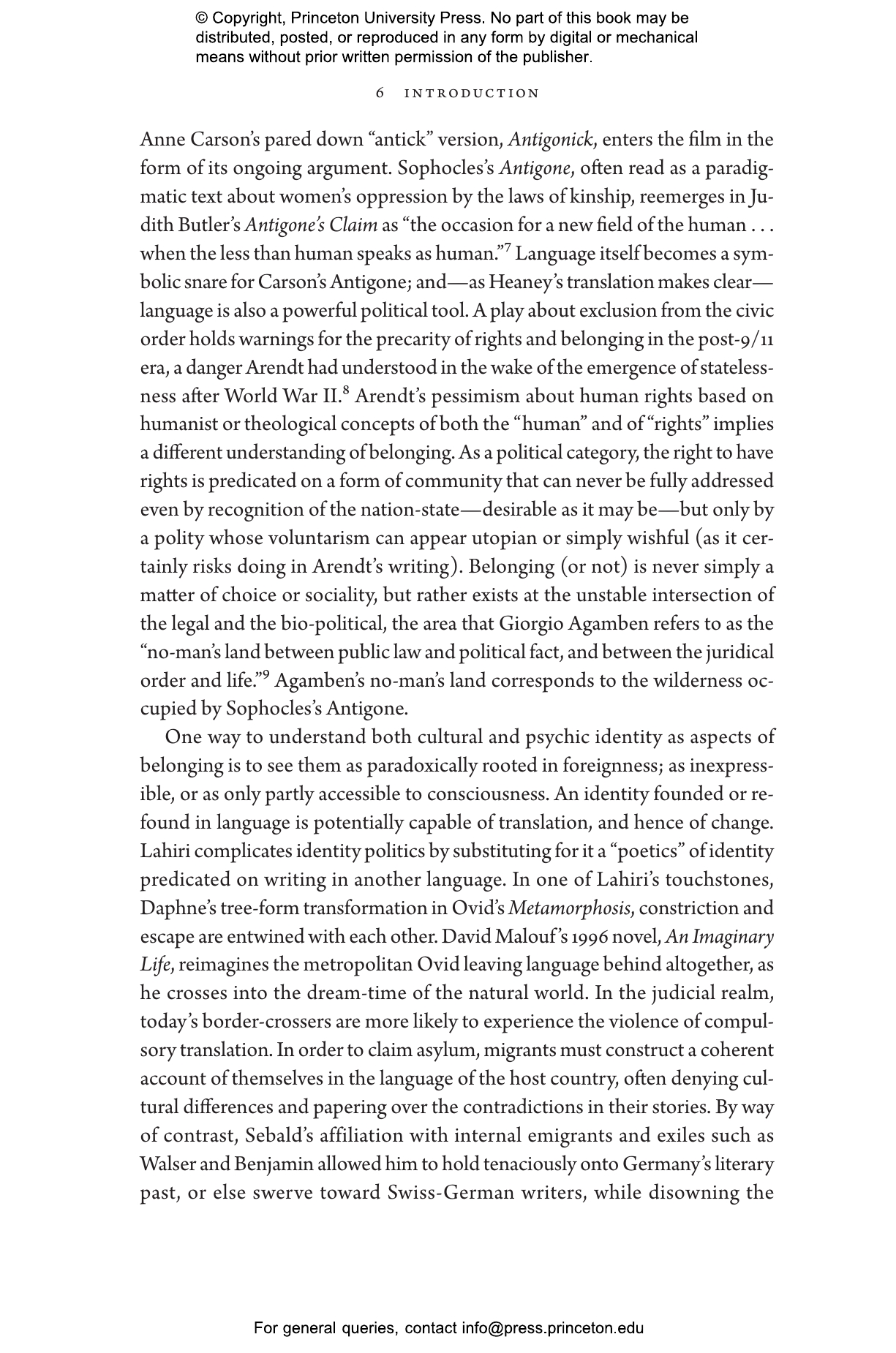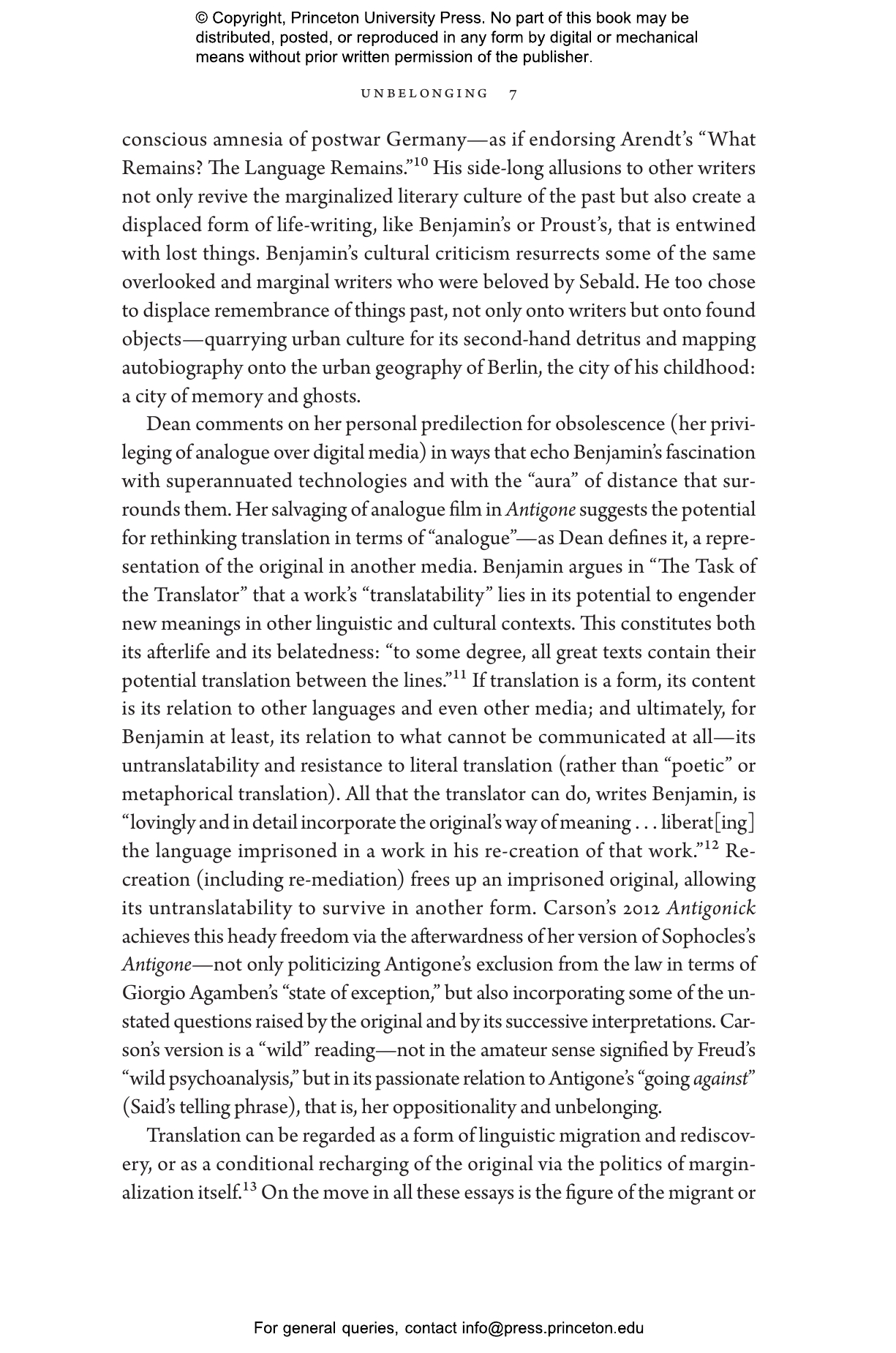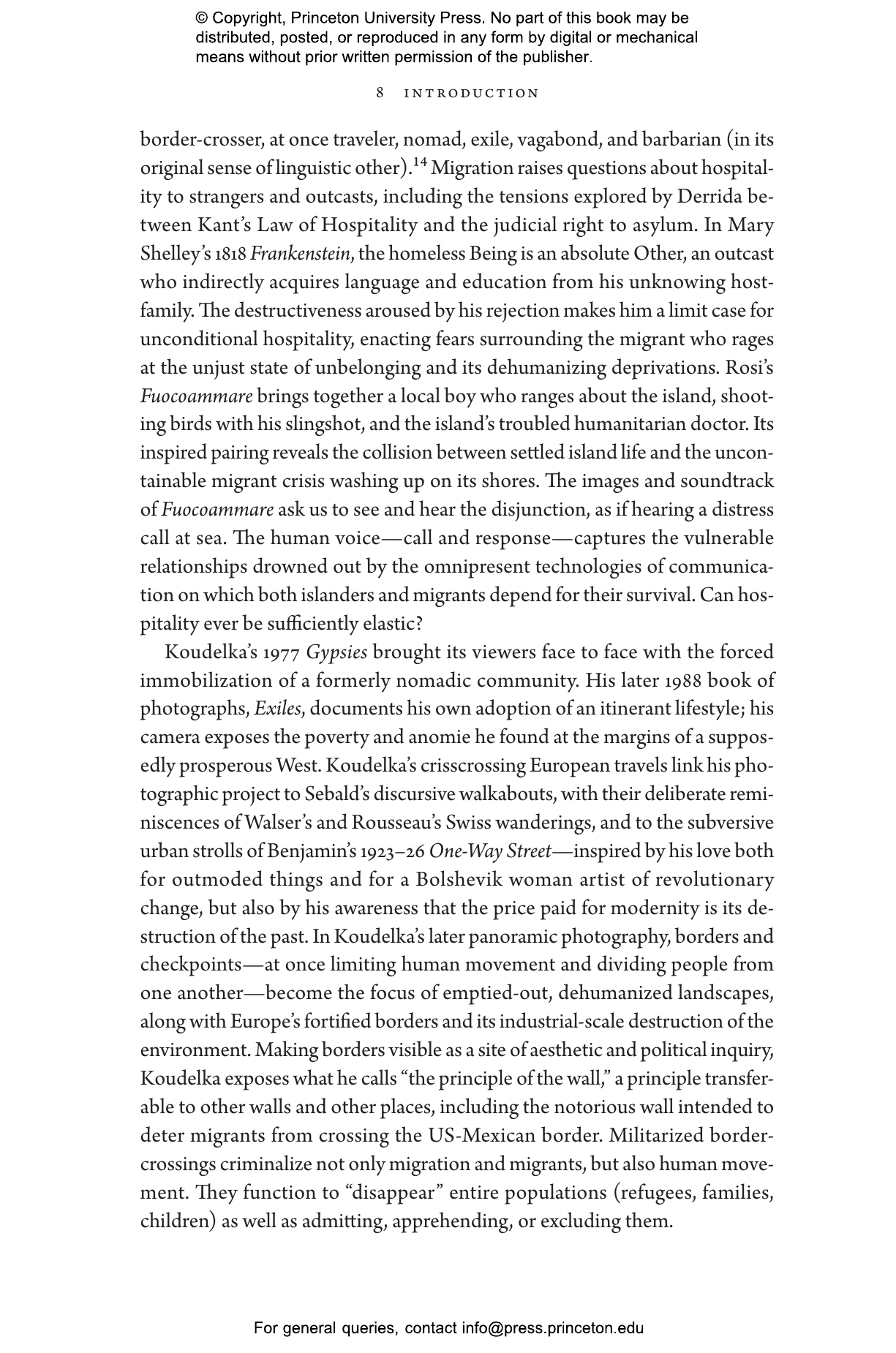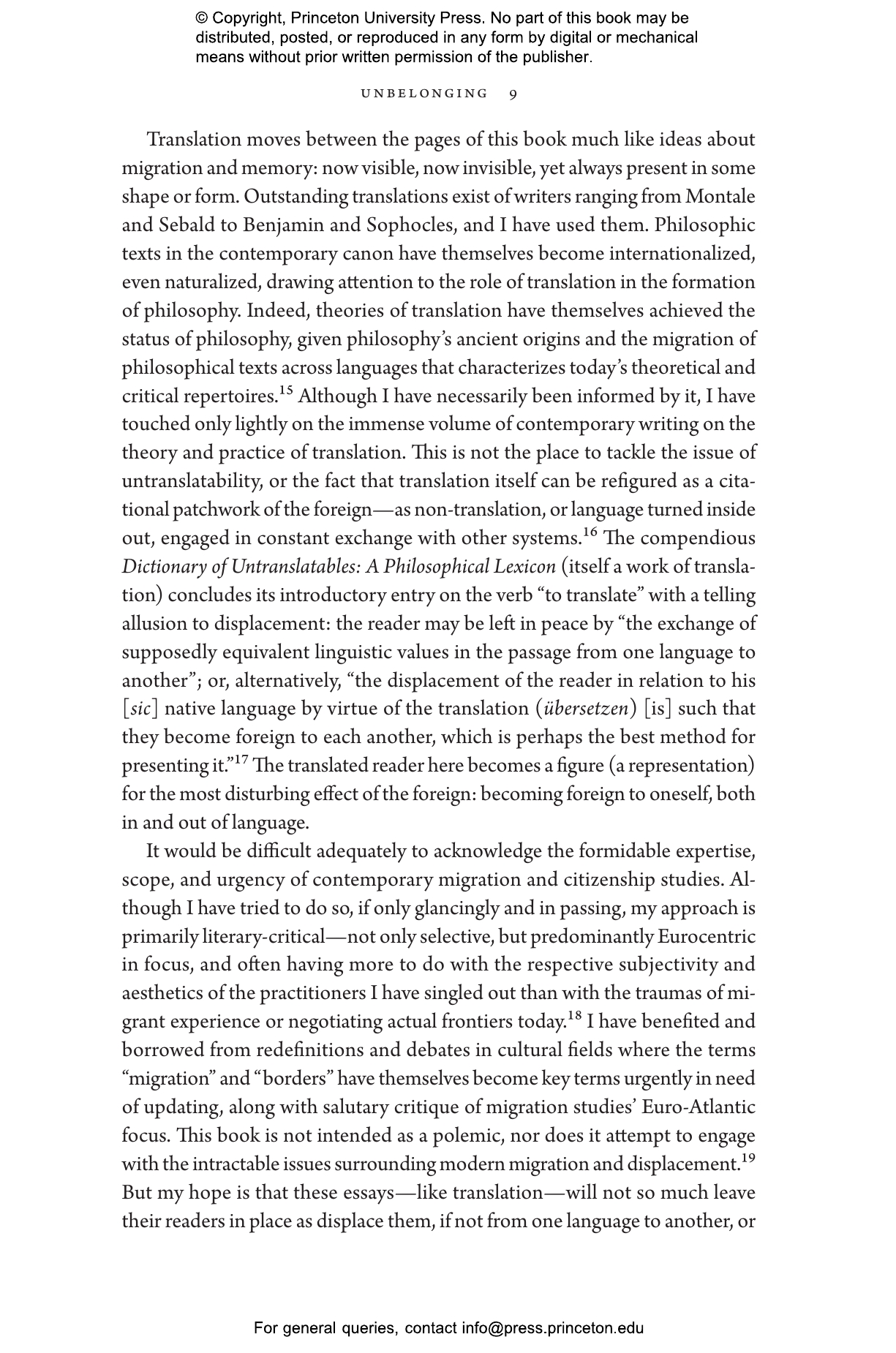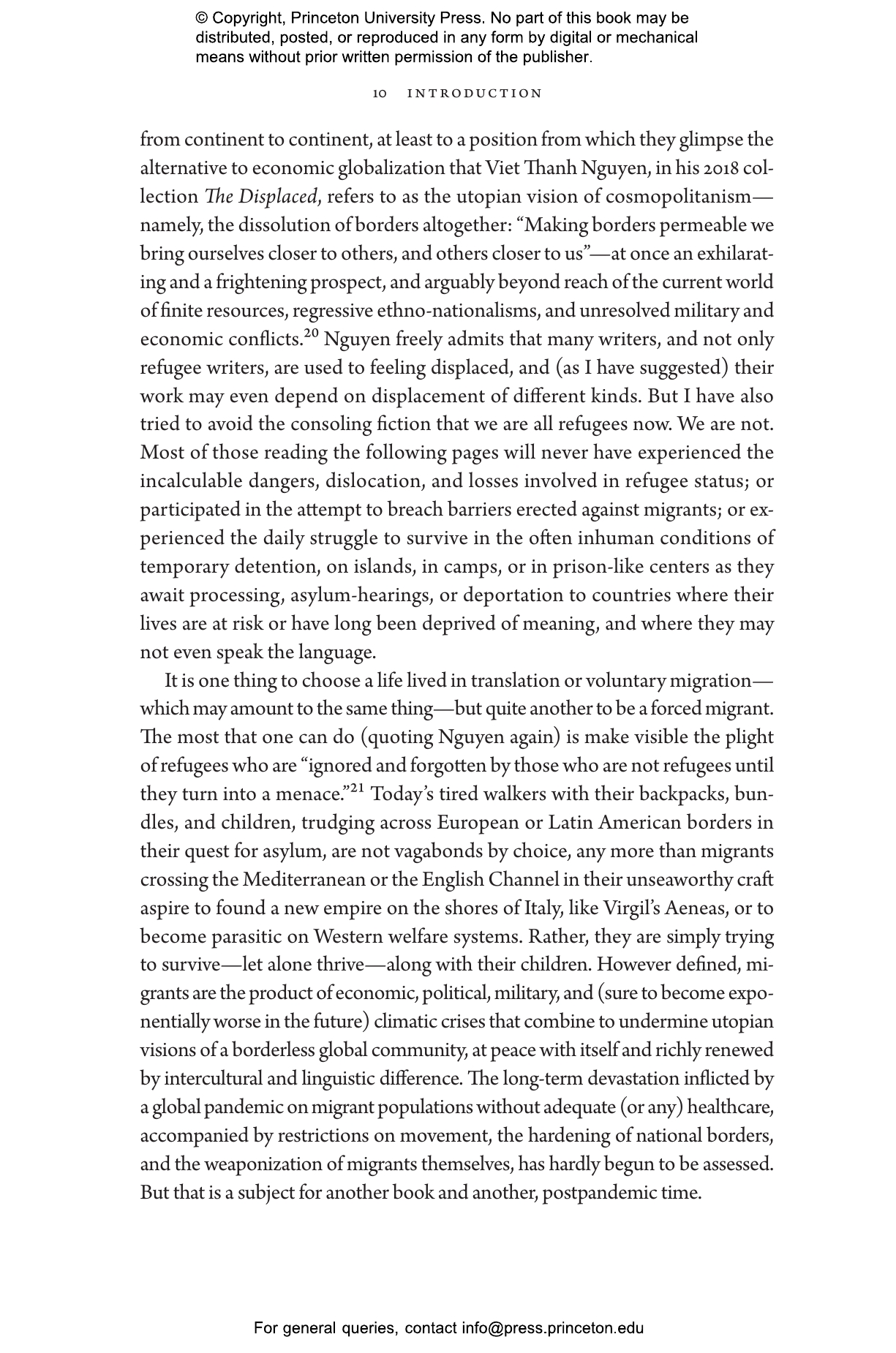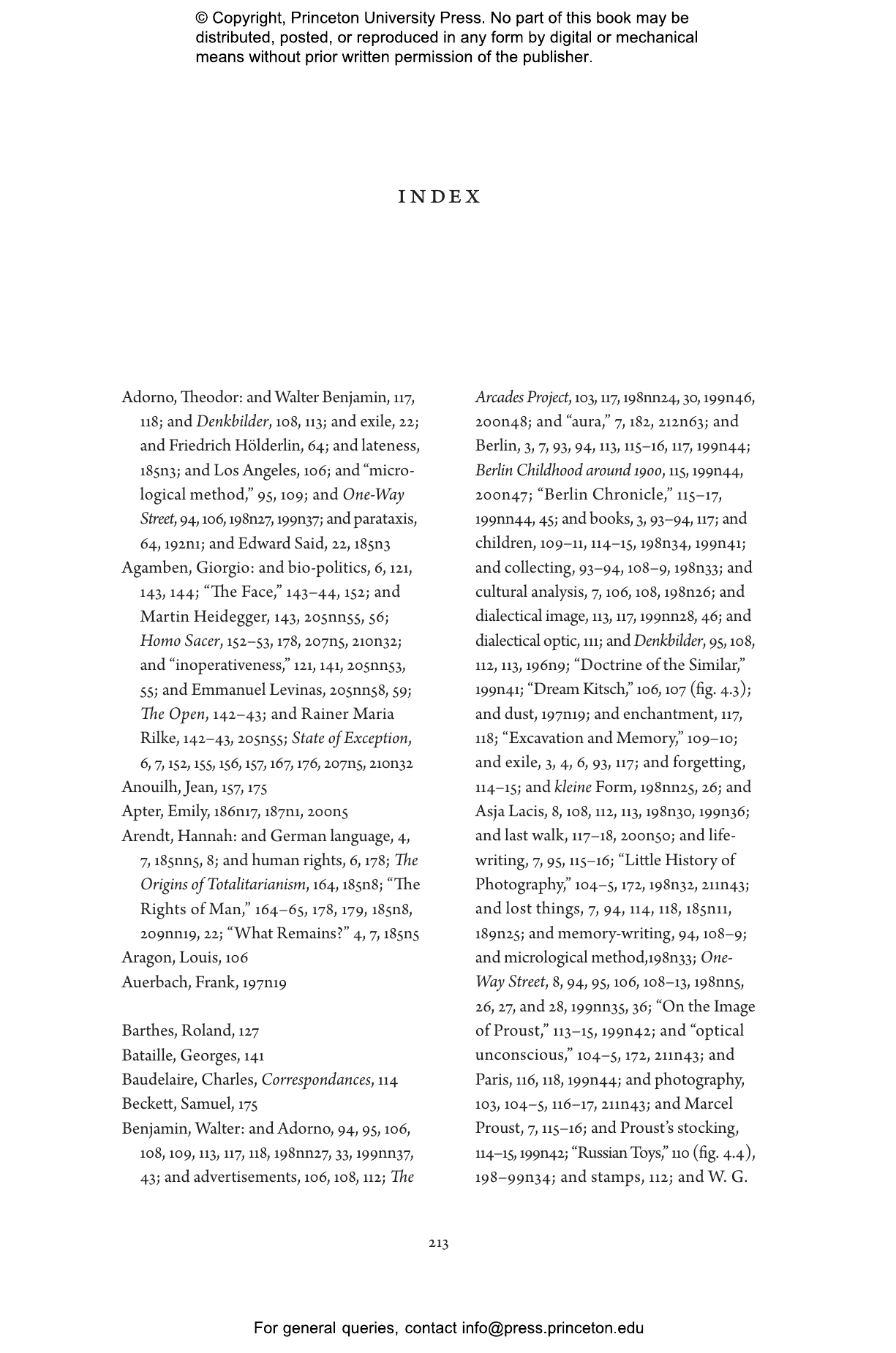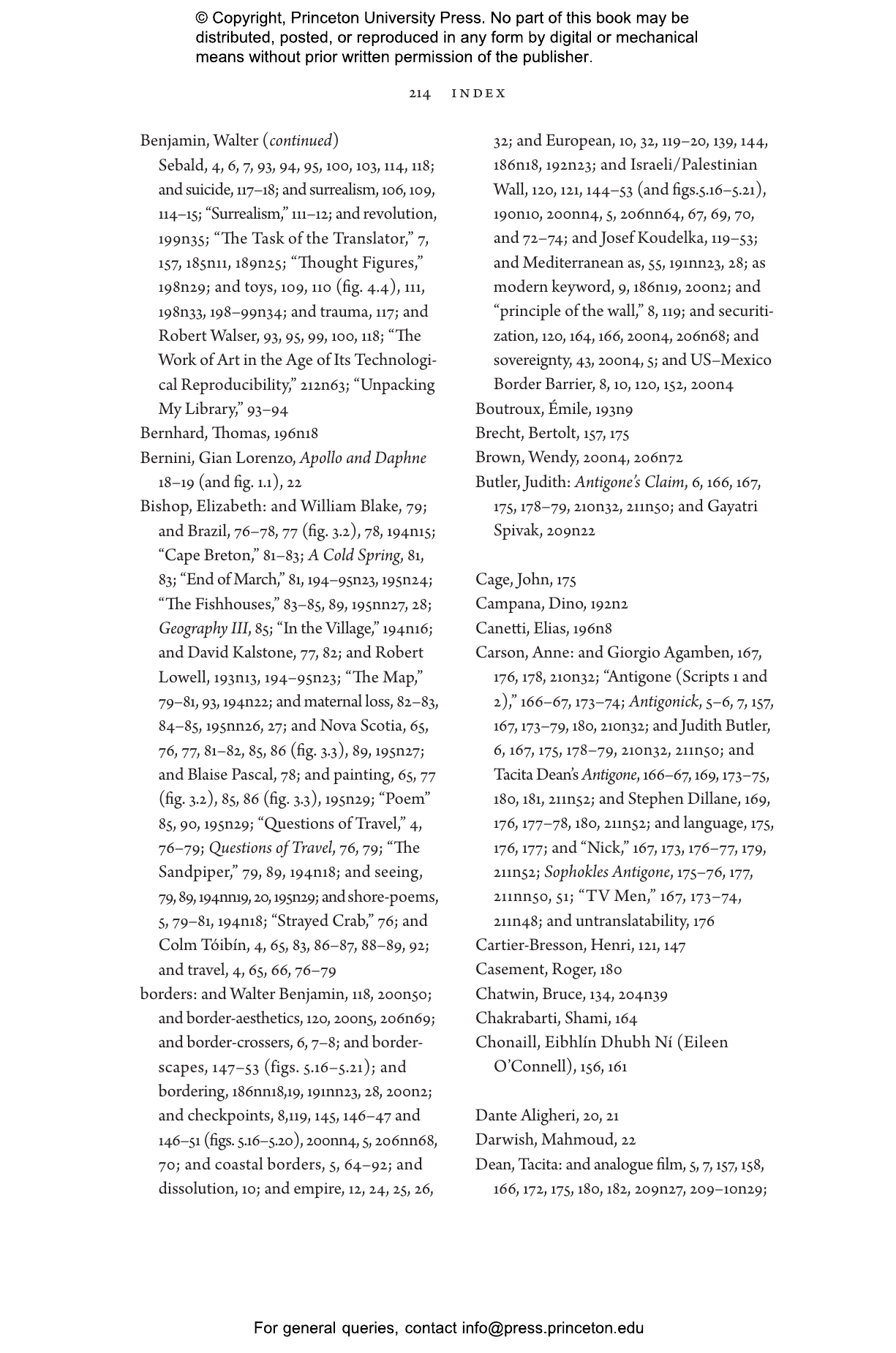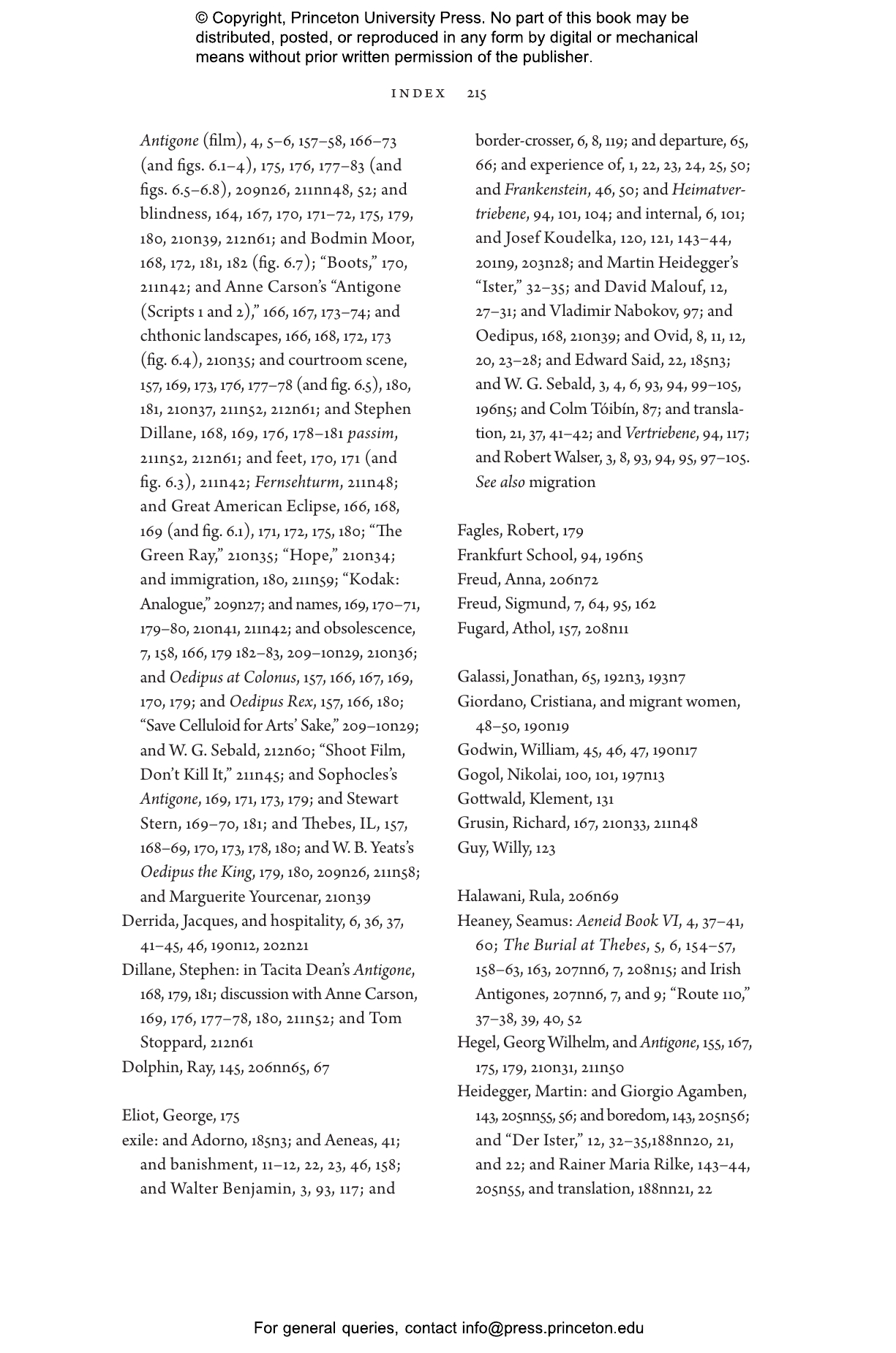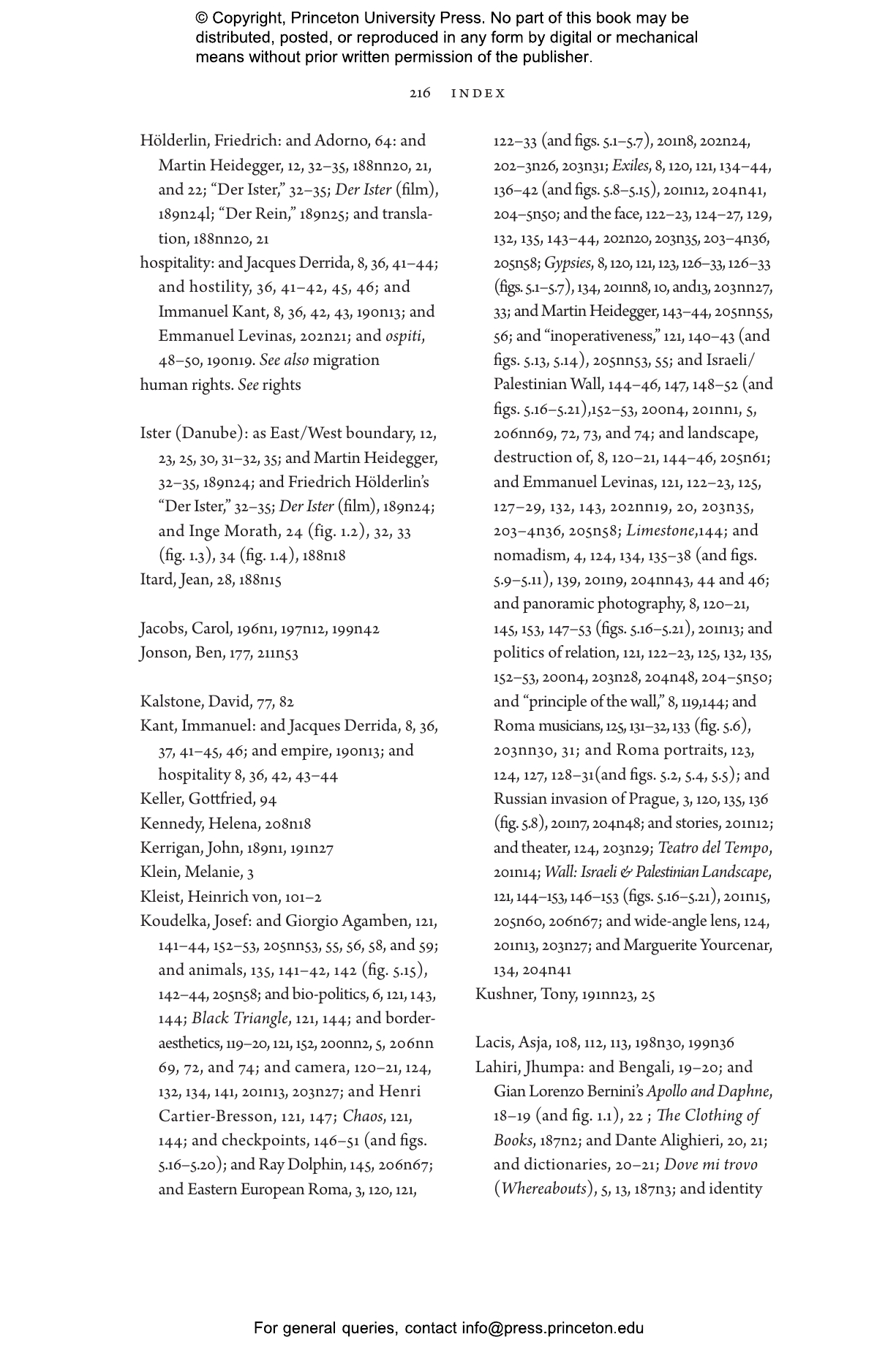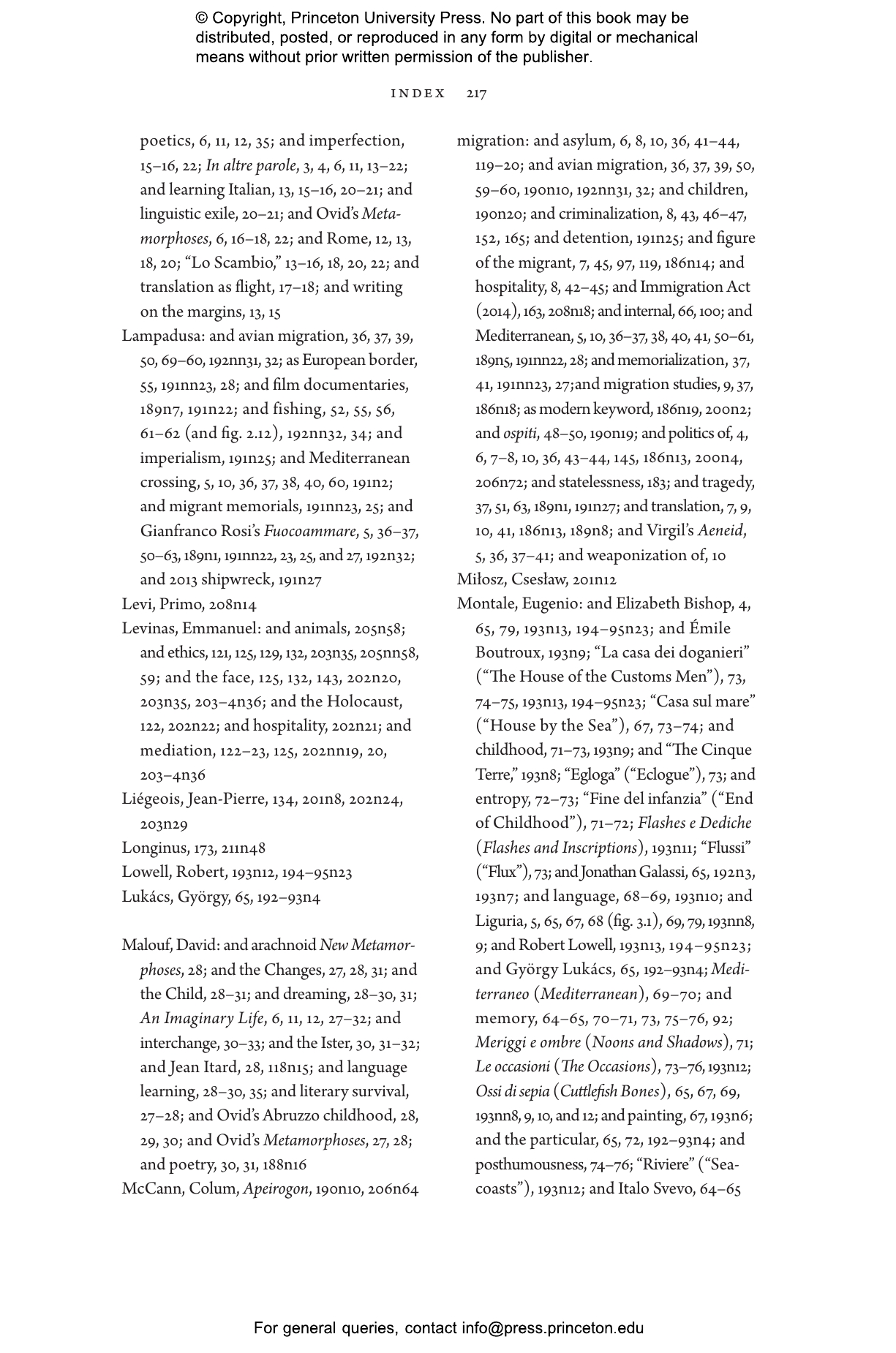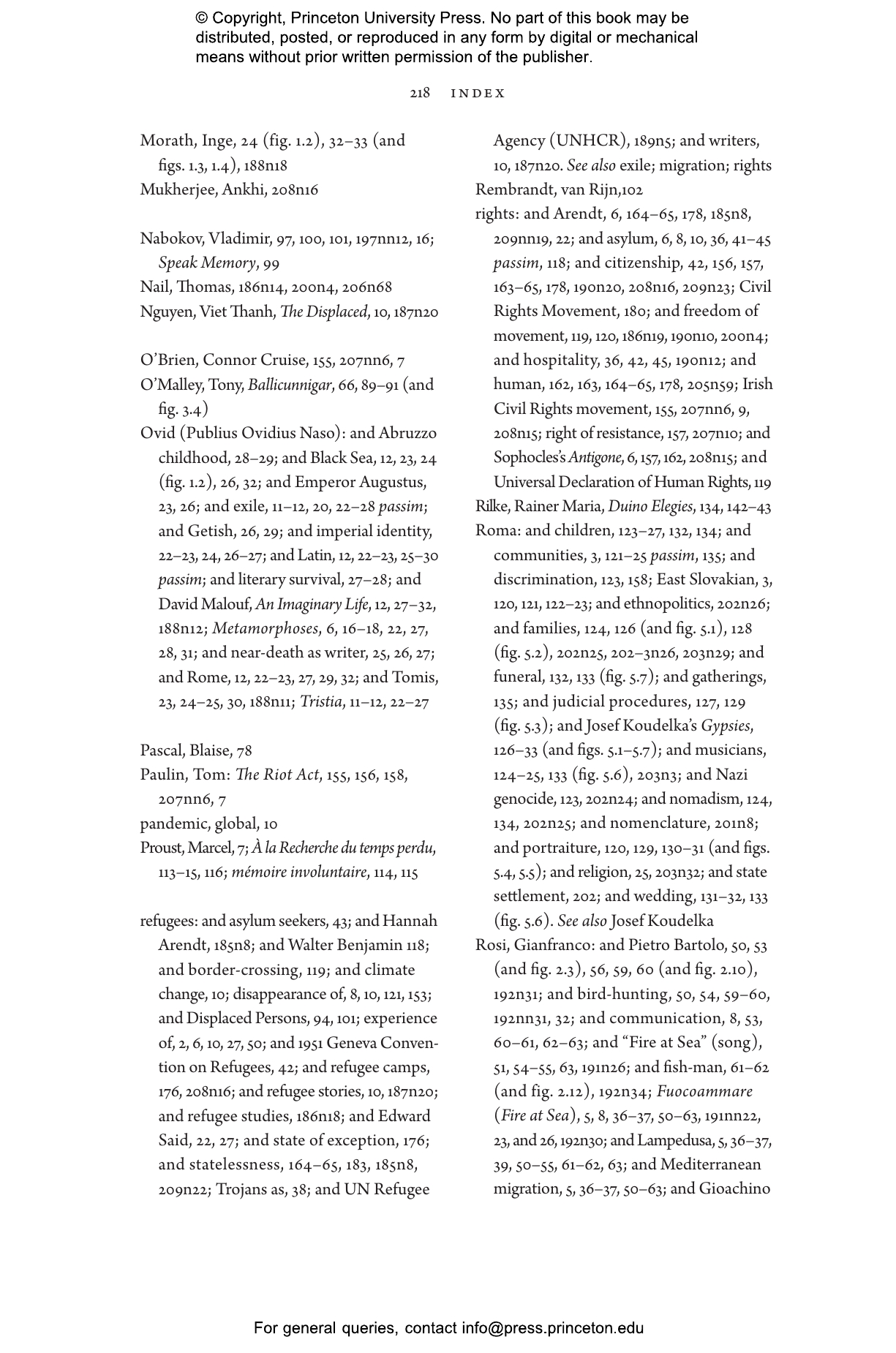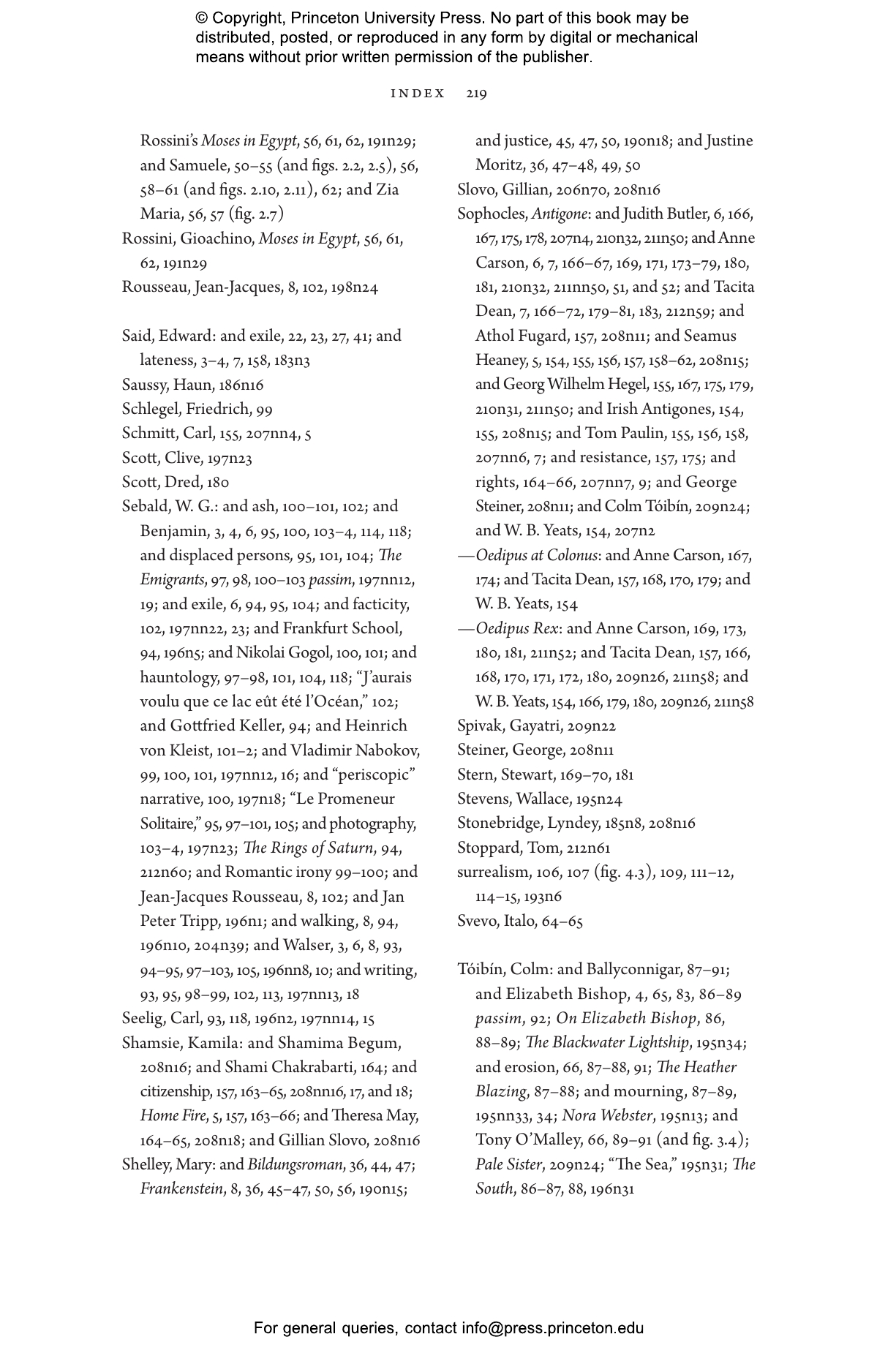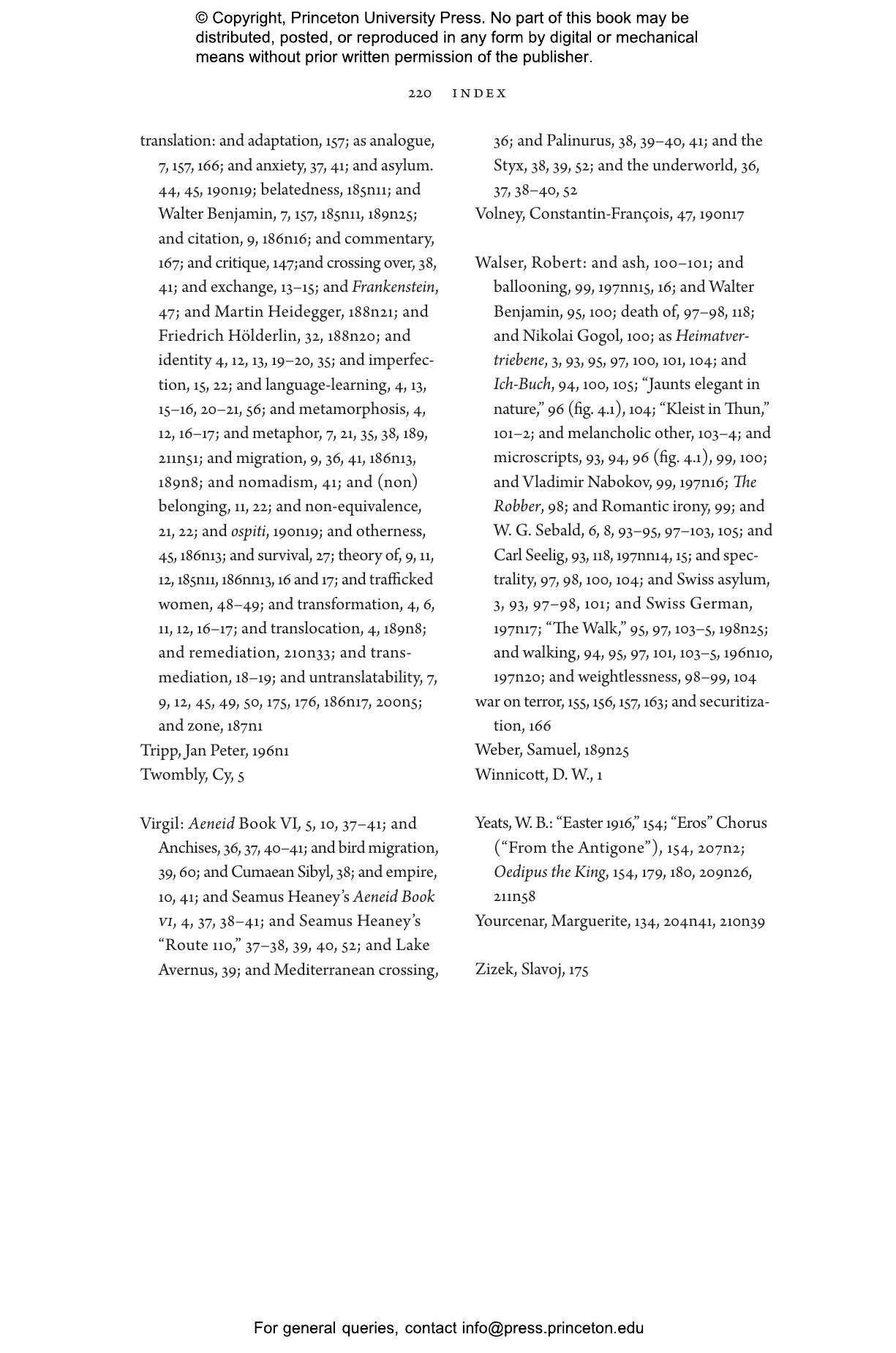On Belonging and Not Belonging provides a sophisticated exploration of how themes of translation, migration, and displacement shape an astonishing range of artistic works. From the possibilities and limitations of translation addressed by Jhumpa Lahiri and David Malouf to the effects of shifting borders in the writings of Eugenio Montale, W. G. Sebald, Colm Tóibín, and many others, esteemed literary critic Mary Jacobus looks at the ways novelists, poets, photographers, and filmmakers revise narratives of language, identity, and exile. Jacobus’s attentive readings of texts and images seek to answer the question: What does it mean to identify as—or with—an outsider?
Walls and border-crossings, nomadic wanderings and Alpine walking, the urge to travel and the yearning for home—Jacobus braids together such threads in disparate times and geographies. She plumbs the experiences of Ovid in exile, Frankenstein’s outcast Being, Elizabeth Bishop in Nova Scotia and Brazil, Walter Benjamin’s Berlin childhood, and Sophocles’s Antigone in the wilderness. Throughout, Jacobus trains her eye on issues of transformation and translocation; the traumas of partings, journeys, and returns; and confrontations with memory and the past.
Focusing on human conditions both modern and timeless, On Belonging and Not Belonging offers a unique consideration of inclusion and exclusion in our world.
Mary Jacobus is the Grace II Professor Emerita of English at the University of Cambridge and professor emerita of English at Cornell University. Her many books include Reading Cy Twombly (Princeton) and Romantic Things.
"[On Belonging and Not Belonging] explore[s] displacement’s hidden dimensions in formulations often subtle and surprising."—Katie Trumpener, Critical Inquiry
"On Belonging and Not Belonging provides a unique contribution to the literature on migrant experiences that will be of interest to researchers in philosophy and art, particularly those with interests in identity and place."—Choice
“With these impassioned reflections, Mary Jacobus fashions a rare, incisive critical poetics: she reads and looks at contemporary writers and artists and thinks with them, quietly, exhilaratingly. On Belonging and Not Belonging expands our understanding of the most vexed and dangerous issues of our times and shows that intensive hermeneutics, scholarly inquiry, and knowledge, pursued with subtlety and depth, can reveal alternative, enabling approaches to identity, foreignness, history, and memory.”—Marina Warner, author of Esmond and Ilia: An Unreliable Memoir
“In this bedazzling book, Mary Jacobus brings her gift for close critical attention to questions of citizenship, belonging, human rights, exile, statelessness, and atrocity. Ranging across film, literature, and art, Jacobus shows how we cannot hope to settle social and political questions of belonging—should they ever indeed be settled—without paying imaginative regard to the poetry of need, rage, and justice.”—Lyndsey Stonebridge, author of Placeless People: Writing, Rights, and Refugees
“This subtle, wide-ranging book explores the anxiety of travel, both voluntary and involuntary. Elizabeth Bishop’s question is important and recurring: ‘Should we have stayed at home?’ Could we have? What is home? On Belonging and Not Belonging offers different answers to these questions, found in close readings of photography and fiction, film and poetry, and in a final tour de force that evokes the wildness of the story of Antigone.”—Michael Wood, author of On Empson
“Spanning centuries as well as countries, the scope of On Belonging and Not Belonging is humblingly huge, and the book’s critical responsiveness is both delicate and decisive. In honoring not only the politics but also the poetics of identity, Mary Jacobus shows how it is continually made, unmade, and remade. Her work will vastly and irreversibly enrich our understanding of the enigmatic 'at' of being at home.”—Steven Connor, author of Giving Way: Thoughts on Unappreciated Dispositions
